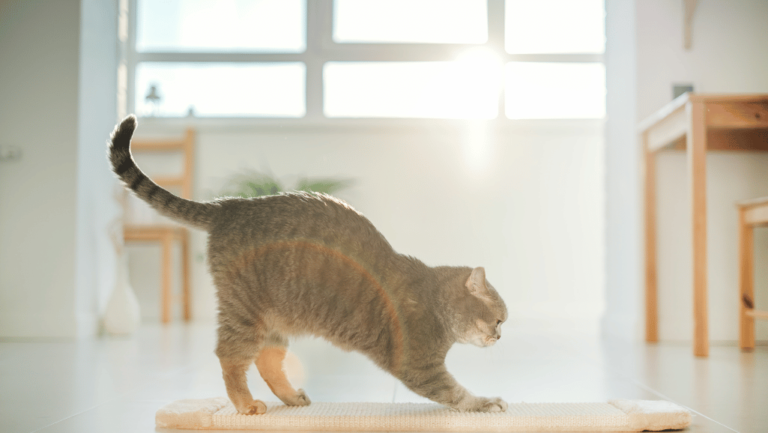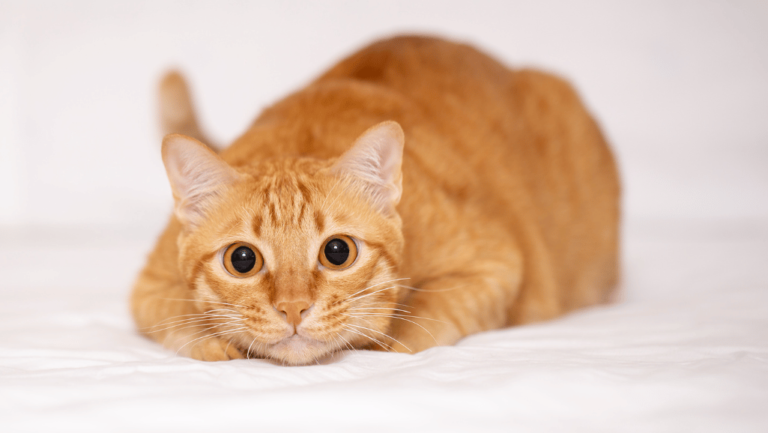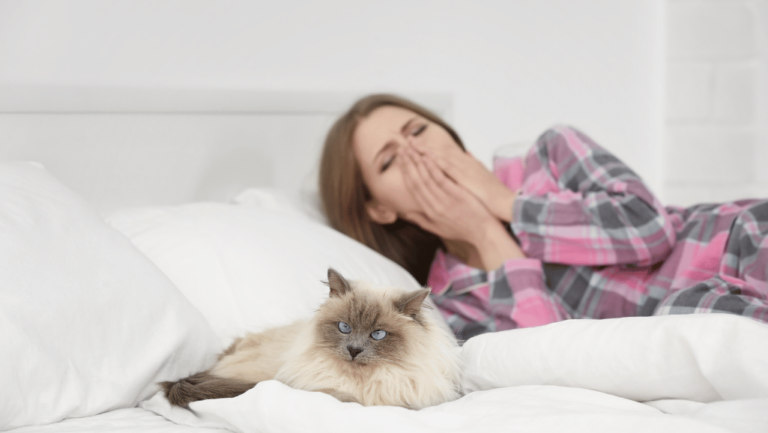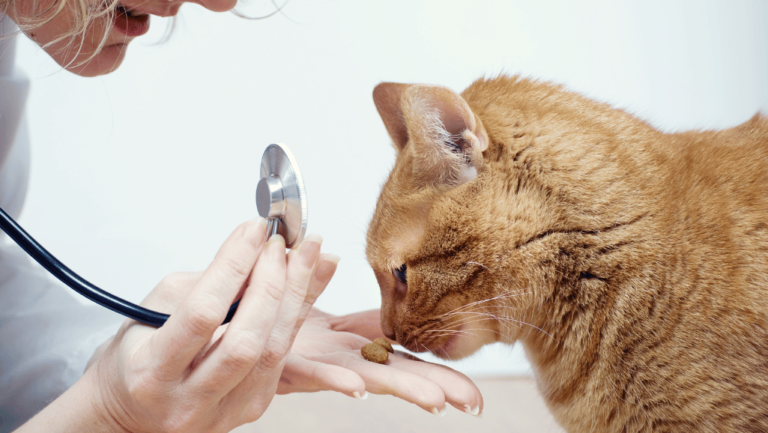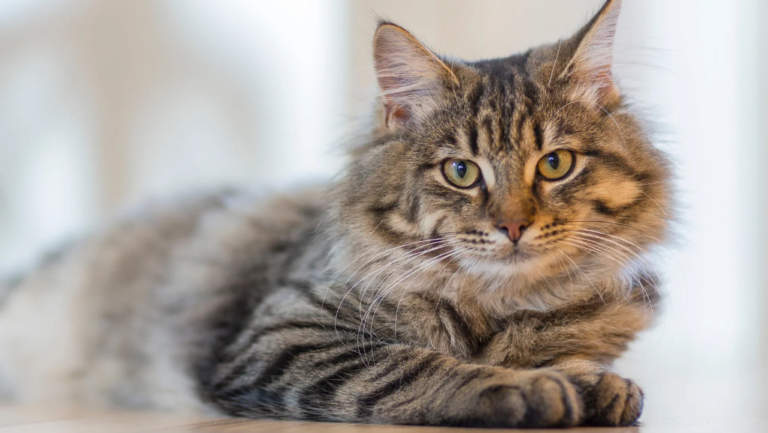Welcome to our comprehensive guide on caring for cats with Feline Leukemia (FeLV). Living with Feline Leukemia can present unique challenges, but with the right care and management, cats diagnosed with FeLV can still have a fulfilling and comfortable life.
FeLV is a viral infection that affects the immune system of cats, making them more vulnerable to various illnesses and infections. In this guide, we will provide you with expert tips and strategies for living with Feline Leukemia, including diagnosing the disease, managing symptoms, and preventing the spread of infection.
Whether you are a new cat owner with a recently diagnosed FeLV-positive cat or an experienced caregiver looking for more information, this guide will equip you with the knowledge and resources you need to provide the best possible care for your beloved feline companion.
Key Takeaways:
- Living with Feline Leukemia requires special care and management.
- FeLV testing is essential to diagnose the disease.
- FeLV-positive cats should be kept indoors to prevent the spread of infection.
- Regular veterinary check-ups are crucial to monitor the cat’s health.
- Vaccination and prevention play a key role in managing FeLV infection.
Diagnosing Feline Leukemia
To determine if your cat has Feline Leukemia, it is important to have them tested for the virus. FeLV testing is a sensitive and accurate method to diagnose FeLV infection. The most common type of FeLV test is a blood test, which detects the presence of the virus in the cat’s bloodstream.
If your cat is exhibiting symptoms such as low energy, fever, and decreased appetite, it is crucial to consider the possibility of FeLV infection. While these symptoms are not exclusive to FeLV, they can be indicative of the disease. However, it is important to note that some cats infected with FeLV may show no visible signs or symptoms.
FeLV testing should be conducted by a veterinarian or a qualified laboratory. The blood sample can be taken from your cat’s vein and sent to the laboratory for testing. The results are usually available within a few days.
Common Symptoms of FeLV Infection:
- Low energy: Cats infected with FeLV may appear lethargic and have a decreased interest in activities.
- Fever: FeLV can cause an increase in body temperature. If your cat has an unexplained fever, it may be a symptom of FeLV infection.
- Decreased appetite: Cats with FeLV may experience a loss of appetite, resulting in weight loss and malnutrition.
It is important to retest your cat after four weeks to confirm the diagnosis. False-positive results can occur due to the presence of maternal antibodies in kittens or if a cat has recently been vaccinated against FeLV. Retesting allows for a more accurate assessment of the cat’s immune response to the virus.
Remember, early diagnosis and detection of FeLV can help in managing the disease and improving your cat’s quality of life. If you suspect your cat may be infected with FeLV, consult with a veterinarian for proper testing and guidance.
Managing FeLV Infection
Cats with Feline Leukemia (FeLV) require careful management and additional precautions to ensure their well-being. While the disease can be managed, it may lead to various complications, such as cancers, immune system suppression, and anemia. It is important to take necessary steps to minimize the risks and maintain a good quality of life for FeLV-positive cats.
Precautions and Care Measures
FeLV-positive cats should be kept indoors to prevent the spread of the infection to other felines. This also reduces their exposure to potential stressors and pathogens that can worsen their condition. Providing a stress-free environment is essential for their overall health and immune system.
Feeding them a high-quality, balanced diet is crucial to support their immune system and help them fight off infections. Consult with your veterinarian to determine the most appropriate diet for your FeLV-positive cat. Regular check-ups and vaccinations are vital to monitor their health and detect any secondary infections in their early stages.
Common FeLV Complications
The sequel follows the FeLV infection, complications can arise which must be closely monitored and treated promptly. These complications may include:
- Cancer development, such as lymphoma and leukemia
- Suppression of the immune system, leading to increased susceptibility to infections
- Anemia, which can cause weakness and fatigue
- Development of kidney disease
Regular veterinary check-ups are crucial for early detection and intervention.
Vaccination and Prevention Strategies
To prevent FeLV infection in cats, vaccination plays a key role. Kittens should receive the FeLV vaccine at an early age, and adult cats should receive regular booster shots. It is also important to test other cats in the household for FeLV and ensure they are negative. Vaccination and regular testing help reduce the risk of transmission and protect the entire feline population in your home.
Managing FeLV Transmission Risk
FeLV transmission can occur through mutual grooming, sharing litter boxes, and fighting. It is crucial to take precautions to minimize the risk:
- Keep FeLV-positive cats separated from FeLV-negative cats to prevent direct contact.
- Provide separate litter boxes, food bowls, and water bowls for each cat.
- Wash your hands thoroughly after handling FeLV-positive cats.
By following these precautions and providing the necessary care, you can help your FeLV-positive cat live a comfortable and fulfilling life.
| Common FeLV Complications | Prevention Strategies |
|---|---|
| Cancer development, such as lymphoma and leukemia | Regular veterinary check-ups and screenings for early detection |
| Immune system suppression, leading to increased vulnerability to infections | Providing a stress-free environment and a balanced diet |
| Anemia, causing weakness and fatigue | Regular check-ups and monitoring for appropriate interventions |
| Development of kidney disease | Proper hydration and monitoring kidney function |
These complications highlight the importance of regular veterinary care and diligent management to ensure the well-being of FeLV-positive cats.
Vaccination and Prevention
When it comes to protecting your cat from Feline Leukemia (FeLV) infection, vaccination is of utmost importance. By ensuring that your furry friend receives the necessary vaccinations, you can significantly reduce the risk of FeLV transmission and safeguard their health.
Kittens should be vaccinated against FeLV at an early age to provide them with adequate protection. Vaccinations should also be administered to adult cats as regular boosters to maintain immunity.
Beyond vaccinating your own cat, it is crucial to take proactive measures to prevent the spread of FeLV to other cats in your household. This involves testing other cats for FeLV to identify any potential carriers. Those who test negative should be vaccinated to further safeguard their health and prevent the transmission of the virus.
Moreover, it is recommended to spay or neuter cats infected with FeLV. This helps prevent the transmission of the virus to newborn kittens. By spaying or neutering your cat, you not only contribute to the overall well-being of your feline companion but also play a crucial role in preventing the further spread of FeLV.
Vaccination and Testing Guidelines:
- Ensure kittens receive the initial FeLV vaccine at around 8 to 9 weeks of age, followed by a booster at 12 weeks.
- Adult cats should receive annual FeLV boosters to maintain immunity.
- Regularly test other cats in the household for FeLV to identify carriers and prevent transmission.
- Vaccinate other cats in the household who test negative for FeLV to provide them with protection.
- Consider spaying or neutering FeLV-positive cats to prevent transmission to newborn kittens.
By adhering to these vaccination and prevention guidelines, you can minimize the risk of FeLV infection and create a safer environment for all cats in your household.
Veterinary Care and Checkups
Regular veterinary check-ups are crucial for cats with Feline Leukemia (FeLV). These check-ups should ideally be scheduled every six months to monitor the cat’s health and address any concerns promptly. FeLV-positive cats are more susceptible to certain diseases, so regular check-ups help detect any signs of illness early on.
As a responsible cat owner, it is important to be aware of the signs of illness in FeLV-positive cats. Keep an eye out for the following symptoms:
- Unintentional weight loss: If your FeLV-positive cat is experiencing significant weight loss despite a normal appetite, it may be a sign of an underlying health issue.
- Enlarged lymph nodes: Swollen lymph nodes are often a telltale sign of infection or inflammation. Regularly check your cat’s lymph nodes, located under the jaw, behind the knees, and in the groin area.
- Oral infections: FeLV-positive cats may develop oral infections, such as gum disease or stomatitis. Look out for signs of bad breath, drooling, reluctance to eat, or inflamed gums.
Prompt veterinary attention is crucial if you notice any of these signs or suspect that your FeLV-positive cat is unwell. Your veterinarian will be able to evaluate your cat’s condition, provide an accurate diagnosis, and recommend appropriate treatment.
| Signs of Illness | Possible Causes |
|---|---|
| Unintentional weight loss | Underlying health issues, decreased immune function |
| Enlarged lymph nodes | Infection or inflammation |
| Oral infections | Gum disease, stomatitis |
Schedule of Regular Check-ups for FeLV-positive Cats:
- Initial diagnosis and confirmation of FeLV-positive status.
- Within four weeks of the initial diagnosis to evaluate the cat’s immune response to the virus.
- Every six months thereafter to monitor the cat’s overall health and well-being.
Regular check-ups and proactive veterinary care are crucial in managing Feline Leukemia and ensuring the best possible life for FeLV-positive cats.
Home Management and Hygiene
Providing a stress-free environment for FeLV-positive cats is essential. By removing any sources of stress from the home, such as loud noises or aggressive pets, you can help improve their overall well-being. FeLV-positive cats are more susceptible to stress-related complications, so creating a calm and peaceful atmosphere is crucial.
Another important aspect of home management is maintaining a hygienic living space to prevent the spread of infection. Daily cleaning and disinfection of litter boxes, food bowls, and water bowls are essential to maintain a healthy environment for your cat.
Stress reduction tips:
- Create a quiet and peaceful space for your cat, away from high-traffic areas.
- Provide hiding spots and comfortable bedding for relaxation.
- Use calming aids such as pheromone diffusers or sprays.
- Establish a consistent routine to alleviate anxiety.
Hygienic cat gear:
Investing in hygienic cat gear can further enhance the cleanliness of your cat’s living area. Consider the following options:
| Hygienic Cat Gear | Description |
|---|---|
| Self-cleaning litter box | Automatically scoops and cleans the litter, minimizing contact with waste and controlling odors. |
| Stainless steel or ceramic food and water bowls | These materials are easier to clean and are less likely to harbor bacteria compared to plastic bowls. |
| Washable cat beds and blankets | Regularly washing your cat’s bed and blankets help maintain a clean and odor-free resting area. |
Conclusion
Living with Feline Leukemia requires attentive care and regular veterinary monitoring. It is crucial for cat owners to prioritize the well-being of their FeLV-positive cats by following the recommended strategies and tips provided in this comprehensive guide. By implementing proper care and management, cats with Feline Leukemia can lead fulfilling lives.
To ensure the best quality of life for your cat, be sure to schedule regular check-ups with a veterinarian who is experienced in Feline Leukemia care. These check-ups will help monitor your cat’s health, catch any potential issues early on, and provide necessary treatment.
Creating a stress-free environment for your FeLV-positive cat is also essential. Reduce sources of stress in the home, such as loud noises or excessive activity, as this can impact their overall well-being. Additionally, maintaining a clean and hygienic living space, including regularly cleaning litter boxes, food bowls, and water bowls, will help prevent the spread of infection and support your cat’s health.
Remember, with the right care and management, cats with Feline Leukemia can enjoy a good quality of life. By staying informed and proactive, you can provide your beloved furry friend with the love and attention they need to thrive.
Frequently Asked Questions
Here we answer some of the most common questions about these popular cats breeds, their characteristics, and what potential owners can expect.
- FeLV-positive cats should ideally have check-ups with a veterinarian every six months. Regular monitoring is important to detect any signs of illness and provide appropriate treatment.
- Vaccination is essential to prevent FeLV infection in cats. Kittens should be vaccinated at an early age, and adult cats should receive regular boosters. Other cats in the household should be tested for FeLV and vaccinated if negative.
- FeLV-positive cats should be kept indoors to avoid spreading the infection. Maintaining a stress-free environment, providing a high-quality diet, and regular check-ups are also important.
- Common symptoms of FeLV infection include low energy, fever, and decreased appetite.
- The Russian Blue is believed to have originated from northern Russia, particularly the Archangel Isles. Rumors suggest it descended from cats owned by Russian Czars. The first recorded appearance of the breed was in London in 1875. After World War II, crossbreeding with Siamese cats shaped the modern Russian Blue we see today.





